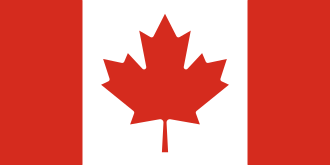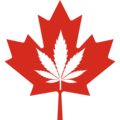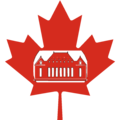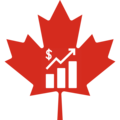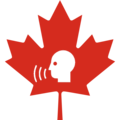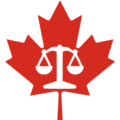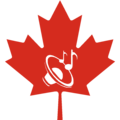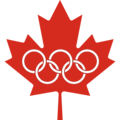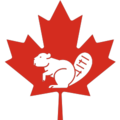Portal:Canada
| Showcase | Contents | Contributing |
Introduction
Canada is a country in North America. Its ten provinces and three territories extend from the Atlantic Ocean to the Pacific Ocean and northward into the Arctic Ocean, making it the world's second-largest country by total area, with the world's longest coastline. Its border with the United States is the longest international land border. The country is characterized by a wide range of both meteorologic and geological regions. With a population of over 41 million, it has widely varying population densities, with the majority residing in urban areas and large areas of the country being sparsely populated. Canada's capital is Ottawa and its three largest metropolitan areas are Toronto, Montreal, and Vancouver.
A developed country, Canada has a high nominal per capita income globally and its advanced economy ranks among the largest in the world by nominal GDP, relying chiefly upon its abundant natural resources and well-developed international trade networks. Recognized as a middle power, Canada's support for multilateralism and internationalism has been closely related to its foreign relations policies of peacekeeping and aid for developing countries. Canada promotes its domestically shared values through participation in multiple international organizations and forums. (Full article...)
Featured article -
Mount Cayley is an eroded but potentially active stratovolcano in the Pacific Ranges of southwestern British Columbia, Canada. Located 45 km (28 mi) north of Squamish and 24 km (15 mi) west of Whistler, the volcano resides on the edge of the Powder Mountain Icefield. It consists of massif that towers over the Cheakamus and Squamish river valleys. All major summits have elevations greater than 2,000 m (6,600 ft), Mount Cayley being the highest at 2,385 m (7,825 ft). The surrounding area has been inhabited by indigenous peoples for more than 7,000 years while geothermal exploration has taken place there for the last four decades. (Full article...)
Current events
- June 20, 2025 –
- Four people are missing after a Kawasaki medical helicopter on a rescue operation crashes north of Baie-Johan-Beetz near Natashquan on the Côte-Nord in Quebec, Canada. The pilot is found and taken to hospital. (CBC)
- June 19, 2025 –
- A rockslide at Bow Glacier Falls near Banff, Alberta, Canada, kills at least two people. Three other hikers sustained injuries. (CFCN-DT)
- June 15, 2025 –
- The 51st G7 summit begins in Kananaskis, Alberta, Canada. (France24)
- June 10, 2025 – War crimes in the Gaza war, Gaza humanitarian crisis
- The United Kingdom, Canada, Australia, New Zealand, and Norway impose sanctions on Israeli far-right ministers Bezalel Smotrich and Itamar Ben-Gvir, including asset freezes and travel bans, due to their conduct during the Gaza war. (Reuters)
- May 27, 2025 – 2025 royal tour of Canada
- King Charles III, in his capacity as King of Canada, visits Canada along with Queen Camilla on Prime Minister Mark Carney's advice. He also read the Speech from the Throne, the first reigning monarch to do so since 1977. (NPR)
- May 23, 2025 – Canada–United States relations
- A group of U.S. senators visit Ottawa, Canada, to meet with Canadian prime minister Mark Carney in an effort to maintain the relationship between the two countries amidst Trump's tariffs on the country and calls to make it the 51st state. (The New York Times)
Selected panorama -
National symbol -

An inuksuk (plural inuksuit) or inukshuk is a type of stone landmark or cairn built by, and for the use of, Inuit, Iñupiat, Kalaallit, Yupik, and other peoples of the Arctic region of North America. These structures are found in northern Canada, Greenland, and Alaska. This combined region, north of the Arctic Circle, is dominated by the tundra biome and has areas with few natural landmarks. (Full article...)
Selected vital article -
Canada has ten provinces and three territories that are sub-national administrative divisions under the jurisdiction of the Canadian Constitution. In the 1867 Canadian Confederation, three provinces of British North America—New Brunswick, Nova Scotia, and the Province of Canada (which upon Confederation was divided into Ontario and Quebec)—united to form a federation, becoming a fully independent country over the next century. Over its history, Canada's international borders have changed several times as it has added territories and provinces, making it the world's second-largest country by area. (Full article...)
Selected picture -
Featured biography -
Sir John Alexander Macdonald PC GCB QC (10 or 11 January 1815 – 6 June 1891) was the first prime minister of Canada, serving from 1867 to 1873 and from 1878 until his death in 1891. He was the dominant figure of Canadian Confederation, and had a political career that spanned almost half a century. (Full article...)
Did you know -

- ... that the mainland portion of Lake of the Woods Provincial Park in northwestern Ontario, Canada, was deregulated as part of a First Nations land claim settlement?
- ... that in 1858, when 400 Black Americans experiencing discrimination in California resettled on Vancouver Island, clergyman Edward Cridge integrated Christ Church to welcome them?
- ... that the Otoskwin–Attawapiskat River Provincial Park, protecting the Otoskwin and Attawapiskat Rivers in Ontario, Canada, has archaeological and historical sites dating from 3000 BC to the 1800s?
- ... that the entire inventory of historic string instruments in Canada's Musical Instrument Bank are loaned to musicians in a competition held every three years?
- ... that the inclusion of the Canadian song "How Long" in a bootleg Russian DVD resulted in a sixteen-year search for the track's creator?
- ... that Darryl Milburn made his Canadian Football League debut on his birthday, but did not appear in any other games that year?
- ... that Canadian architect Barry Downs contributed to the redevelopment of the Expo 86 site in Vancouver, the largest private development in North America at the time?
Featured list -
Canada's national parks are protected areas under the Canada National Parks Act, owned by the Government of Canada and administered for the benefit, education, and enjoyment of the people of Canada and its future generations. National parks are administered by Parks Canada, a Crown agency operating under the jurisdiction of the Ministry of Environment and Climate Change. The goal of the national parks system is to set aside lands representing the country's 39 distinct natural regions described in the National Parks System Plan, primarily to protect the ecological integrity of the land, and secondarily to allow the public to explore, learn about and enjoy Canada's natural spaces. (Full article...)
Canadian content search
Associated Wikimedia
The following Wikimedia Foundation sister projects provide more on this subject:
-
Commons
Free media repository -
Wikibooks
Free textbooks and manuals -
Wikidata
Free knowledge base -
Wikinews
Free-content news -
Wikiquote
Collection of quotations -
Wikisource
Free-content library -
Wikiversity
Free learning tools -
Wikivoyage
Free travel guide -
Wiktionary
Dictionary and thesaurus

